
Magnesium: The mineral that wants you to succeed
Magnesium is an essential mineral and is needed in over 300 enzymatic reactions in the body. It’s known as a ‘helper’ mineral because of how hard it works.

Calcium is one of the most abundant minerals in the human body, making up approximately 1-2% of an adult's body weight.

Vitamin B12 plays a vital role in your health and a insufficiency can cause a wide range of symptoms and issues. Learn more about Vitamin B12 today!

Multivitamins are a combination of the key nutrients your body needs, in the form of a single dose supplement.


Magnesium is an essential mineral and is needed in over 300 enzymatic reactions in the body. It’s known as a ‘helper’ mineral because of how hard it works.

Anyone who has been jolted awake by a cramping calf muscle cramping, knows that muscle cramps can be irritating, painful and if frequent, disruptive.

Omega-3 fatty acids are a type of fatty acid essential to your overall health and wellbeing. Find out the benefits of Omega-3 fatty acids now.

Do you often wake up with an aching back, stiff shoulder or sore knees? Do you struggle more with everyday tasks like hanging clothes on the line, opening jars or simply getting out of the car? Well, you are not alone. Joint pain often develops between the ages of 30 and 50 and is increasingly commo

Nearly all of us have spent a night wide awake and willing for sleep to come. Hops has traditionally been used in Western herbal medicine to relieve sleeplesness and assist in a good night’s sleep.

Indigestion — also known as dyspepsia — is mild discomfort felt in the upper belly or abdomen. It often occurs during or right after eating.




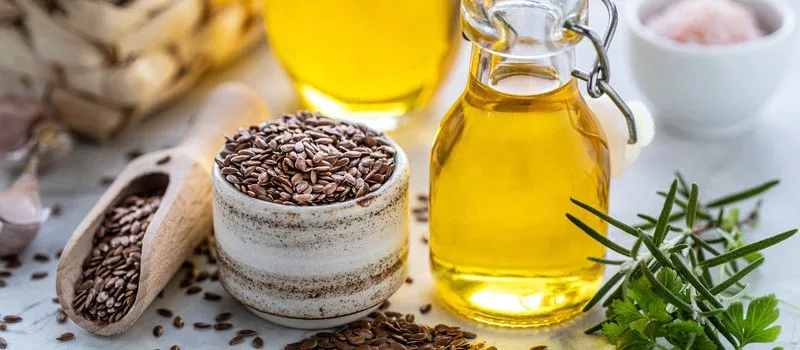


















Fenugreek (Trigonella foenum-graecum), is a short-living annual medicinal plant belonging to the Fabaceae family (pea family) and is used extensively in various parts of the world as a herb, food, spice, and traditional medicine.

Good nutrition is imperative for healthy brain function. The brain consumes a huge amount of energy compared to the rest of the body and it has been shown what you eat influences the molecular systems that govern your mental health. To support cognition, concentration, memory and mood, your body nee

Breastfeeding has many benefits for both mother and baby, but it can also be a challenge — especially for new mums. While breastfeeding is natural, it is still a learned skill and many mums will need time and practice to get it right. For a baby to successfully breastfeed they need to be positioned

Detoxification is a vital cellular task. The process of detoxification involves the mobilisation, biotransformation, and elimination of potentially harmful toxins.

Zinc is an important trace element that comes from our diet. Daily zinc intake is needed because the body does not have a dedicated way to store it nor can we make zinc so we need to obtain it from zinc sources.

Chromium is an essential mineral that the body needs in trace amounts. Chromium helps glucose metabolism and supports general health and well-being.
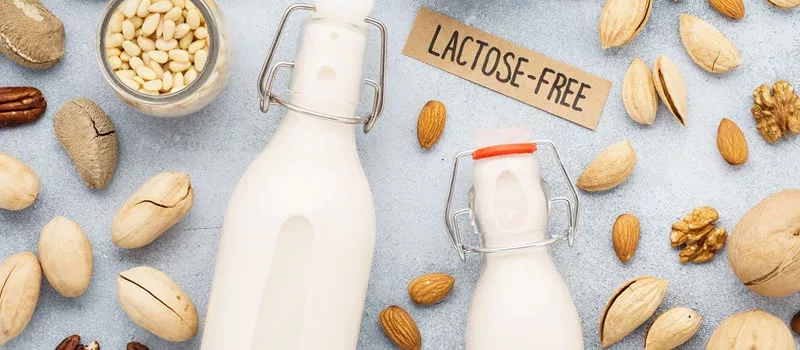
Do you need to go on a lactose-free diet? Learn what foods to avoid and what foods work best when going lactose-free, without feeling like you’re missing out. There’s a wide variety of food available in supermarkets and health foods stores to support people with lactose intolerance.

Iron is a mineral and a biologically essential component of every living organism.

Vitamin E is an essential nutrient to ensure good overall functioning of organs in the body. Occurring in eight different naturally occurring forms, the most common form of vitamin E found in foods and supplements are d-alpha-tocopherol and gamma-tocopherol. It is a fat-soluble vitamin that is stor

Your immune system is ready and waiting to defend and protect you from pathogens and illness.

Premenstrual Syndrome (PMS) affects up to 50% of menstruating women and peaks among women in their 30’s and 40’s. PMS is a set of psychological and physical symptoms that start anywhere from a few days to two weeks before a woman gets her period.

Your liver is one of the most valuable organs in the human body, performing hundreds of vital tasks to help your body run smoothly

A strong immune system is vital for good health and ensuring your quality of life is the best it can be. This complex system of integrated cells, tissues and organs defend us from pathogens, such as bacteria and viruses. There are many ways to maintain your immune system including diet and exercise.

No matter how healthy you are, it’s likely you will get a cold or flu at some point. Colds are prevalent, with children getting between five and ten colds a year and adults getting two to four colds each year. Cold symptoms are usually mild and self-limiting.
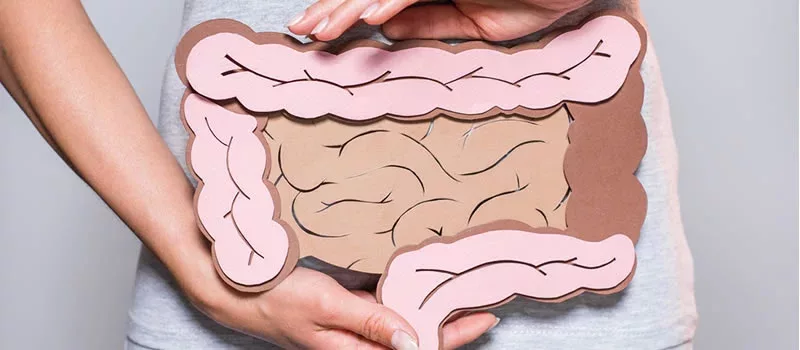
A healthy and well-functioning digestive system is so crucial for optimum health. When we’re properly digesting our food and absorbing nutrients, our bodies reward us with clearer skin, stronger hair and nails and increased energy levels too. On top of that, we now know the bacteria in your gastroin

Your liver is one of the hardest working organs in your body, performing hundreds of vital tasks to help your body run smoothly.

If you’re like most adults, caffeine is a part of your daily routine and helps wake you up and conquer your day. But while there are benefits of coffee it may pose problems for your digestion. Excessive caffeine can have a negative impact on gut health and cause bowel problems. Likewise, there can b

Heartburn, or reflux, occurs when the contents of the stomach back up into the oesophagus and cause a burning sensation in the upper abdomen or behind the breastbone. Usually, when food or liquid travels through the oesophagus and into the stomach, a small band of muscle that sits between the oesoph

Cholesterol is a waxy substance, a bit like fat, that’s carried through your bloodstream in packages called lipoproteins. These packages are made of fat on the outside (where the ‘lipo’ part of the name comes from) and protein on the inside (which accounts for the ‘protein’).

Garlic (Allium sativum L.) is a bulbous plant with a pungent aroma growing to 1.2 metres tall. Garlic is originally from Asia, but it is also cultivated in China, North Africa (Egypt), Europe and Mexico. One of the most widely consumed herbs throughout the world, garlic is easy to grow and has been

Detoxification is a vital cellular task. The process of detoxification involves the mobilisation, biotransformation, and elimination of potentially harmful toxins.

Cystitis is the medical term for inflammation of the bladder. Most of the times it is caused by an abnormal growth of bacteria inside the bladder. Bladder infections are one of the most common bacterial infections to affect people, with up to one-third of all women having at least one infection at s

Do you get cravings for chocolate, an intense desire for salty potato chips or an overwhelming yearning for a cheese‐laden pizza?

Eating a balanced diet is important while you’re breastfeeding. Not only for your baby’s healthy growth and development but also important for you, to help prevent nutritional deficiencies. Nutritional requirements are higher in breastfeeding women. Breastfeeding women require an additional 300 calo

Are there moments when you have to undo the top button of your jeans after a meal and you feel uncomfortable like there is an inflated balloon in your stomach?
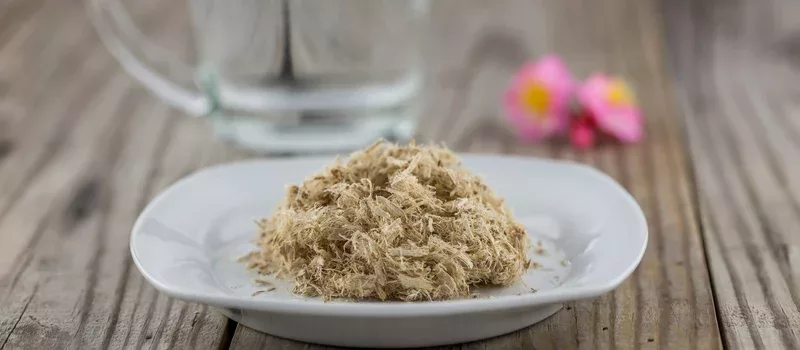
The dried inner bark of the slippery elm tree (Ulmus rubra) has been used as a medicinal remedy by Native American healers for centuries. The name ‘slippery elm’ refers to the ‘slippery’ consistency of the bark when it’s mixed with water. This is due to its high mucilage content. Substances containi

Kelp (Fucus vesiculosis), also commonly referred to as bladderwrack, is a type of brown seaweed that grows on the northern coasts of the Atlantic and Pacific oceans, and the North and Baltic seas. It’s a natural source of various minerals and plant nutrients, especially iodine.

Grape seed extract (Vitis vinifera) is derived from the seed of wine grapes and has been highly regarded for its medicinal benefits since ancient times, with grape seed application traced back to Ancient Greece.

Vitamin D is important for many aspects of health including bone and muscle health. It’s unique from other vitamins because it cannot be obtained solely from food and is naturally produced in the skin through adequate exposure to UV radiation from the sun.

Osteoporosis is an age-related condition where bone strength is compromised due to deterioration in bone mass and quality; this decrease leads to an increase in bone fragility and susceptibility to fractures. Bone fractures from osteoporosis can occur in the wrist, femur, hip or vertebrae, and can h

Questioning going to the gym today? Or not sure if you’ll find time for a run? If you need a bit of extra motivation, think of your bone health. Exercise is a great way to boost bone strength and prevent bone mass loss as you age.

Joint pain will affect most people at some point in their life. Some may experience pain around the joint — like bursitis or tendonitis — from a sprain or strain associated with sport or exercise; others may experience pain and inflammation in the joint itself.

Your bones support your every move, protect your vital organs and act as a storehouse for important minerals. Keeping your bones strong, helps keep you strong and healthy as you age.

Muscle cramps are a continuous, involuntary, painful contraction of a muscle group, single muscle or select muscle fibres. Muscle cramps can last from minutes to a few seconds. If you touch the muscle, you will find a knot. Muscle cramps are common in young people during vigorous exercise and in old

Knee pain is a very common condition affecting approximately 19% of the population. Knee pain is slightly more prevalent in women with twenty percent of women affected and 15-20% of men presenting with knee pain. The incidence of knee pain increases steadily with age.

Stretching used to be seen as something you did as part of your exercise warm-up and cool down. Now, physical therapists recommend stretching as part of your exercise routine to help promote muscle flexibility and joint health and help combat the effects of a sedentary lifestyle.

Exercise impacts every system in the body and can improve how you feel, look and perform during the day. But what changes does exercise make to your body? What are the benefits?
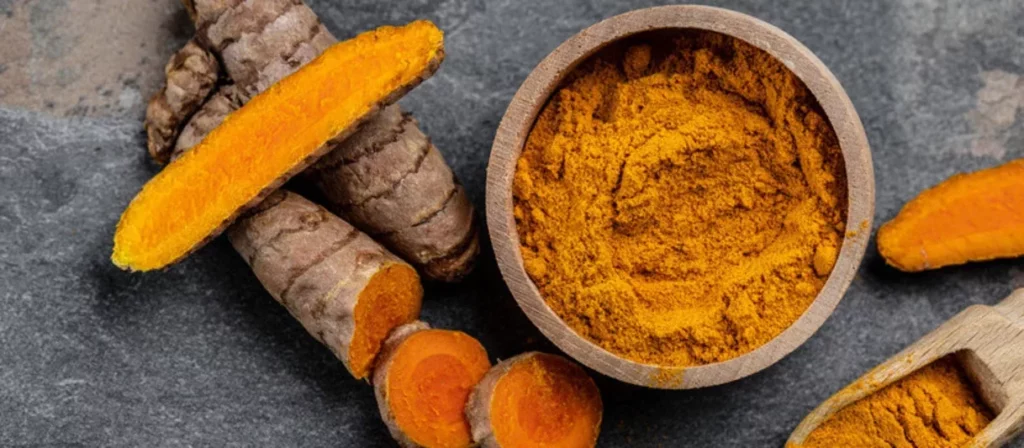
Curcumin is the main active ingredient in turmeric root. Turmeric root is a member of the ginger family and is commonly used to flavour curries. Curcumin has powerful antioxidant and anti-inflammatory properties and has been used for centuries by Indian Ayurvedic medicine practitioners.

Cycling has benefits, not only to your physical and mental health but also for the community and environment.

Ziziphus (Ziziphus spinosa) plant originates from China with a history of over 4000 years. The seed has been used medicinally for more than 1700 years.

St John’s Wort (Hypericum perforatum) is a herb that has been used for centuries in Europe to treat a wide range of conditions. It has been referenced by the Dioscorides, the Greek of the 1st century AD and the Greek doctor of the 5th century Hippocrates, where it was known by its Greek name ‘Yperic

Unfortunately, it is near impossible to avoid stress completely. Life gets busy and unexpected events occur. Stress is the body’s natural reaction to anything that disrupts our life as usual. We all experience it in our work and personal lives, but it is how we respond that can make all the differen

Mild anxiety is characterised by feelings of fear and worry, but it’s much more than that. While feeling stressed is a common response to situations of heightened pressure or expectation, anxious feelings don’t necessarily go away once the situation is resolved. Anxiety is very common, with data ind

Our brains and our guts are more in sync than you may realise. You may have noticed an uneasy feeling in your abdomen during stressful periods. Perhaps you felt “butterflies”, nauseous, bloated, had looser bowel motions or abdominal pain. That’s because the digestive system is intimately connected t

We all know the magical, restorative power of a good night’s sleep. Waking up feeling refreshed and ready to conquer the day is a sure sign that you have had some quality ‘zzz’ during the night. If you’ve missed out on getting enough sleep, it’s getting through the day is undeniably much harder: you

Children have much greater sleep needs than adults as sleep directly impacts on their physical and mental development. In fact, sleep is so important that by age two, most toddlers will have spent more time asleep than awake and children will have spent about 40% of their total childhood sleeping.

Tired. Grumpy. Irritable. Unable to concentrate. We all know those feelings and they usually appear when we’re sleep deprived. We’ll also probably have dark circles under our eyes and want to throttle the next person who says “you look tired”.

Do you ever feel nervous, stressed and restless all at once? Passionflower may be the support you are looking for. This calming herb has a long tradition of use throughout Australia, North America and in parts of Central and South America as a naturally derived herbal ingredient to ease restlessness

Collagen is an important structural protein found in human skin, bones and connective tissues, and has become an increasingly popular choice for Australian’s looking to maintain healthy hair, skin and nails. Here, we’ll explore the various benefits of taking collagen supplements, as well as provide

Effervescent supplements are packed with goodness, readily available to the body, and delicious. By dissolving quickly in water, effervescent tablets are easy to use and the bubbly mix means they’re more enjoyable to take. Read on for more information about all the ways that adding effervescence vit

People who follow a vegan diet consume only plant foods and avoid all animal products including eggs, dairy and honey. This could be for ethical reasons, environmental reasons or as a healthy lifestyle choice. Getting adequate vitamins for vegans can be challenging if it is not planned well and may

Vitamin B is a group of water-soluble vitamins that are vital for various bodily functions. But what exactly does Vitamin B do? Vitamin B benefits include supporting healthy red blood cell production, skin and eye health, nervous system health and helping release the energy from food.

A healthy, well-planned vegetarian diet can provide all the nutrients for a healthy body. Still, since plant‐based foods have smaller amounts of specific vitamins and minerals compared to animal products, or they aren’t absorbed as efficiently, you could be missing out on critical nutrients if you d

Do you need caffeine to be productive? Yes? If you do, you’re certainly not alone and not entirely without reason. Many people rely on a cuppa to get going in the morning or to stay focused throughout the day.

We live in a busy world. While we’re often told to disconnect, take a break and relax to help manage our stress levels, there are times when you’re genuinely busy and need to get stuff done. How do you support yourself and your family during the busy times? First, you need to understand how your bod

We are very proud to announce that in October 2022, Opella delivered against this commitment and completed the installation of 1,500 rooftop solar panels at this state-of-the-art manufacturing site. This will produce 1 GWhr of electricity per year, saving 720 tonnes of CO2 (carbon dioxide) per year.

At Nature’s Own, we are on a mission to become more environmentally friendly, and part of our sustainability roadmap involves our packaging. In 2022, we began the process of removing the plastic lamination from our product labels to increase the ease of at home recycling. We’ve also been busy addin

Magnesium is vital for more than 300 of your body’s metabolic reactions including synthesizing proteins, the function of muscles, nerve conduction and supporting healthy blood glucose.

